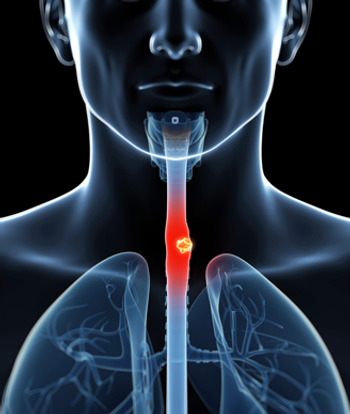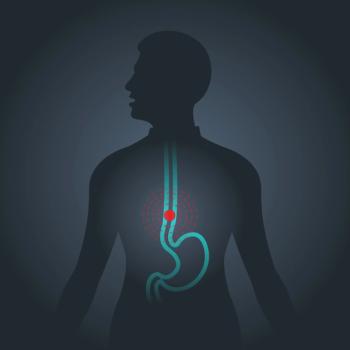
- ONCOLOGY Vol 10 No 12
- Volume 10
- Issue 12
PET Scanning Improves Treatment of Esophageal Cancer, University of Pittsburgh Study Finds
Using positron emission tomography (PET) scanning may improve the treatment of patients with cancer of the esophagus, potentially resulting in lower morbidity, according to surgeons at the University of Pittsburgh Medical Center.
Using positron emission tomography (PET) scanning may improvethe treatment of patients with cancer of the esophagus, potentiallyresulting in lower morbidity, according to surgeons at the Universityof Pittsburgh Medical Center.
James Luketich, md, assistant professor of surgery in the divisionof cardiothoracic surgery, codirector of the University of PittsburghCancer Institute's Lung Cancer Center, and director of the thoraciconcology program, is the principal investigator of this preliminarystudy of the role of PET scanning in the treatment of esophagealcancer. The study's findings were presented on October 26, 1996,at the meeting of the Institute for Clinical PET in Orlando, Florida.
"The purpose of this study is to investigate the effectivenessof PET in determining whether or not a patient's esophageal cancerhas spread to other parts of the body. Such knowledge is importantin determining the type of treatment the patient receives,"Dr. Luketich said. "For instance, if we find that cancerhas spread to the lymph nodes and to other tissue, surgery mightnot be a good option. However, if it is found that cancer hasnot spread, then perhaps surgery and chemotherapy would be thebest approach."
"We studied 21 patients and the PET scan showed 10 tumorsnot previously seen by X-rays or CT scans that had spread to thelymph nodes and seven other tumors that had spread to other areasof the body," Dr. Luketich said. "Overall, the effectivenessof PET in detecting cancer that has spread was 80%."
"Although this study included only a limited number of patients,PET scanning has already proven to be a valuable tool in the treatmentof esophageal cancer patients," Dr. Luketich said.
Articles in this issue
about 29 years ago
Study Links Sex Hormones to Childhood Cancerabout 29 years ago
Scientists Confirm Natural Resistance to HIV-1about 29 years ago
Breast Cancer Incidence and Mortality--United States, 1992about 29 years ago
New Study Proves Benefits of Antiseptic-Impregnated CathetersNewsletter
Stay up to date on recent advances in the multidisciplinary approach to cancer.



































